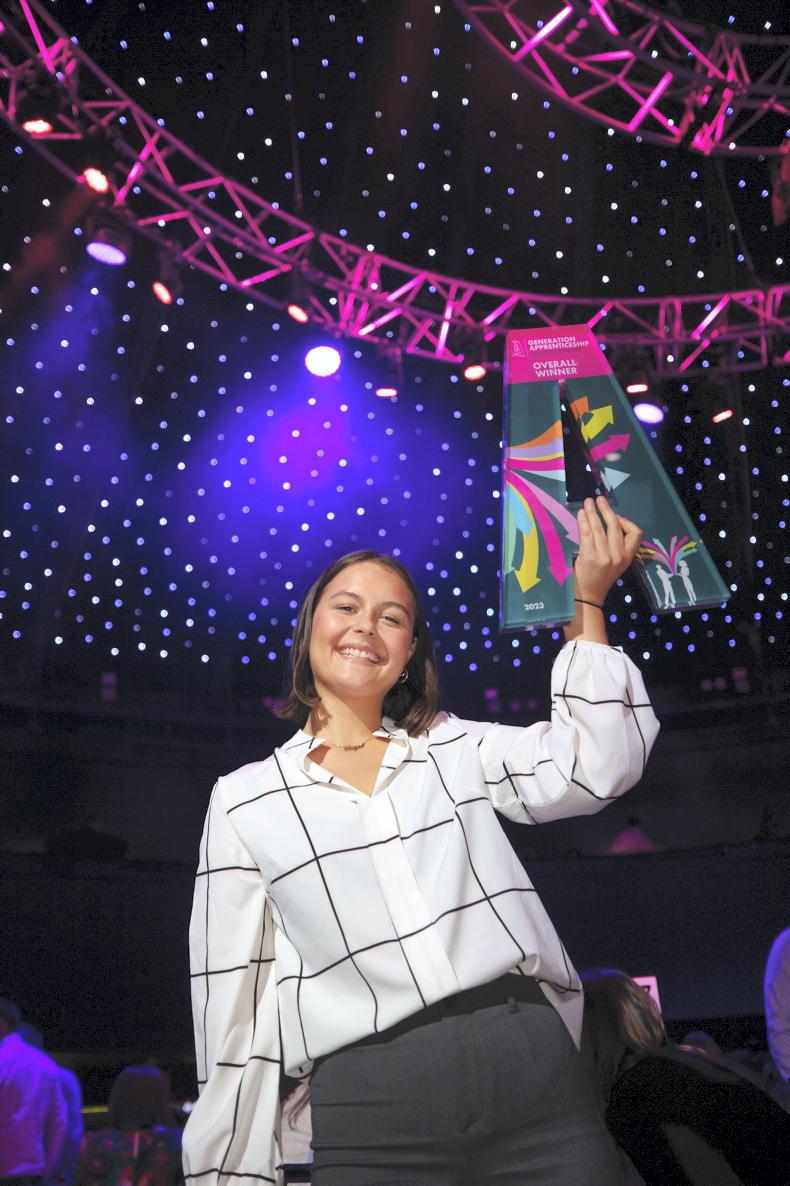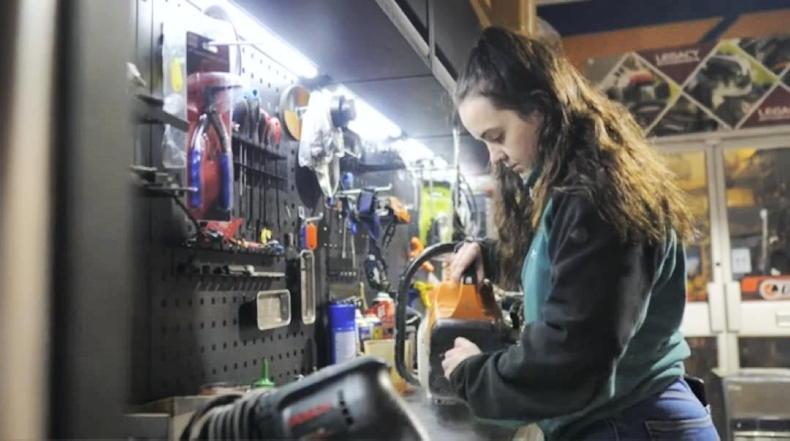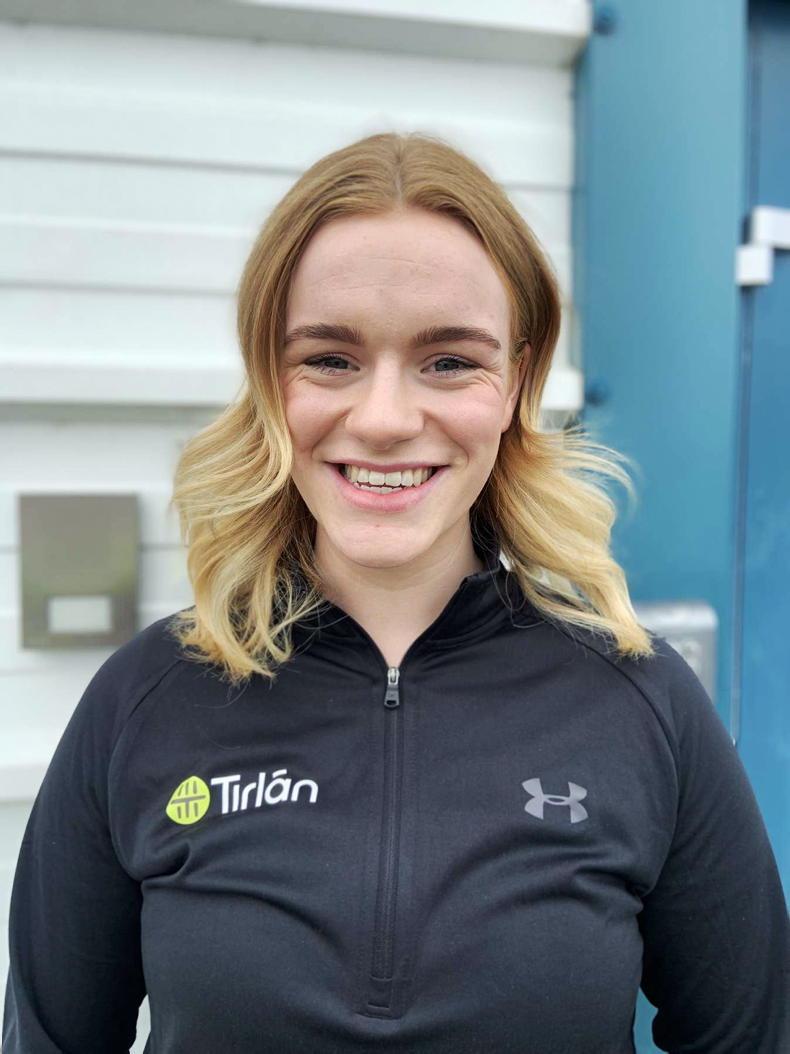For many years, apprenticeships have been a pathway dominated by males. Up until 2016, fewer than 30 women were choosing the apprenticeship route every year. However, there has been a significant increase in the uptake of women building their careers through this path.
In 2023, the overall apprentice population in Ireland was 27,470, of which 2,272 were women. More women are putting themselves forward to take on these practical pathways and are pursuing careers in areas of construction, engineering, electronics and more.
Efforts to challenge stereotypes and promote inclusivity in various industries are ongoing to encourage a more balanced representation. The National Apprenticeship Office along with their partners in the Higher Education Authority (HEA), SOLAS and local Education Training Boards (ETBs) told Irish Country Living that there is a constant effort being made to encourage and attract more women into apprenticeships.
Facts, Faces, Futures
The ‘Facts, Faces, Futures’ campaign was launched on International Women’s Day two years ago and is aimed at giving society a different way of thinking about apprenticeships. Damian Walshe, stakeholder engagement manager with the National Apprenticeship Office, spoke about the initiative.
“It is a targeted, focused campaign highlighting women in apprenticeships and promoting apprenticeships as a career option for women,” he said.
“The campaign is in all of our general apprenticeship leaflets to highlight that the number of females involved in apprenticeships is growing year on year.”
The increase and diversity of available apprenticeships has been one of the reasons that more women are now undertaking this career path as there are currently 73 apprenticeship options across 16 different sectors.
Extra funding available
There is an employer grant of €2,000 per year, per apprentice available for any employer taking on a male or female apprentice from one of the newer courses.
To encourage employers to take on more female apprentices, there is a gender bursary grant they can avail of. This is applicable to an employer who hires an apprentice in an apprenticeship where there is 80% or more representation of a single gender. Employers will receive €2,666 in funding; the list of eligible apprenticeships are available on apprenticeship.ie.
“There are no barriers for a female applying to an apprenticeship versus a male,” says Damian. “There still is that perception and stigma [surrounding women], it is going to be there for a while to come as these apprenticeships are new in the last three to five years and change takes time.”
Hazel Johnston, manufacturing engineering apprentice

Hazel Johnston pictured after winning the 2023 Generation Apprenticeship apprentice of the year award.
Although Hazel — the first female to win the Apprentice of the Year title in 2023 — received her first choice on the CAO, she always wanted to do engineering. But because of the maths involved and the fact she is a girl, she was too nervous to apply at first.
“Apprenticeships weren’t talked about at all when I was in school,” she said. “I heard from a friend about the apprenticeships as I wanted to get a degree, but I also thought it was a good idea to earn money while I was in college.”
After school, Hazel took the time to figure out what route she wanted to go down and decided to have a gap year first. “I took the year out to almost prepare myself to go into engineering. When the apprenticeship came up, it was a no brainer for me. I would get the industry experience and get to work as an engineer along with college exams.”
Academic side
Hazel is currently in the fourth year of a manufacturing engineering apprenticeship working with DePuy Synthes, the orthopaedics company of Johnson & Johnson. During the block learnings, Hazel is on the Munster Technological University (MTU) Bishopstown Campus in Cork, but she says that she finds the academic side quite difficult.
“A lot of people think that if you’re going into an apprenticeship, you don’t need to study and it’s all hands on, but the college semester is very full on,” says Hazel.
Hazel hopes it will bring more women into the sector. “I hope that younger girls that are thinking of going into engineering, STEM or apprenticeships in general are looking at me and seeing that they can do it too,” she says. “It’s not something just to fall back on or something you should do if you don’t think you will be good at college, it’s a first choice. Girls shouldn’t be worried or afraid — it’s the best decision I ever made.”
Caoimhe Dennehy, original equipment manufacturing apprentice

Caoimhe Dennehy, original equipment manufacturing apprentice.
After completing secondary school, Caoimhe decided to work for her dad as she grew up surrounded my machinery.
It took three years before she found an apprenticeship that would suit smaller machinery. The original equipment manufacturing apprenticeship came to the Limerick and Clare ETB, and when Caoimhe saw it advertised, she signed up with her dad’s company as the employer.
“I didn’t think I was capable of going to college because I am dyslexic, I always put myself down,” says Caoimhe. “But I have always known I am good with my hands and every time something needed fixing around the house, I was called.”
Having completed the three-year apprenticeship, Caoimhe is now working full-time in a garage in Kilrush. She really enjoyed her training programme as she learnt about mechanics, hydraulics, and electronics.
“The more I got into the apprenticeship, the more I was able to do. I realised halfway through my apprenticeship that I am just as good as anyone else. I was the first woman to graduate in my course in Limerick. It felt great, I wasn’t just proving it to myself but I was proving to other women that they are able to do it.”
Caoimhe thinks there should be more women going into apprenticeships as there are so many opportunities. “Don’t ever let anyone hold you back and know what you’re capable of,” she says.
Emma Mc Aree, electrical apprenticeship in Tirlán

Emma Mc Aree.
Emma grew up on a suckler and chicken farm outside Emyvale, Co Monaghan, and she is currently in phase five of her electrical apprenticeship with Tirlán in Lough Egish. When she started her programme, there were only three girls in a class of 32.
“When I entered sixth year, I knew that I would prefer a more hands-on approach to my learning to classroom-based,” she says. “I got in contact with my local ETB and asked if they knew of anyone hiring apprentices. Luckily for me, they put me in contact with the maintenance manager in Tirlán Lough Egish and I have been there since October 2020.”
There are now a few more women in Emma’s locality doing an electrical apprenticeship.
“Becoming an apprentice can be daunting. The best thing you can do is keep your head high and understand that everyone starts somewhere and you have as much right to be there as the person standing beside you,” she says.
For many years, apprenticeships have been a pathway dominated by males. Up until 2016, fewer than 30 women were choosing the apprenticeship route every year. However, there has been a significant increase in the uptake of women building their careers through this path.
In 2023, the overall apprentice population in Ireland was 27,470, of which 2,272 were women. More women are putting themselves forward to take on these practical pathways and are pursuing careers in areas of construction, engineering, electronics and more.
Efforts to challenge stereotypes and promote inclusivity in various industries are ongoing to encourage a more balanced representation. The National Apprenticeship Office along with their partners in the Higher Education Authority (HEA), SOLAS and local Education Training Boards (ETBs) told Irish Country Living that there is a constant effort being made to encourage and attract more women into apprenticeships.
Facts, Faces, Futures
The ‘Facts, Faces, Futures’ campaign was launched on International Women’s Day two years ago and is aimed at giving society a different way of thinking about apprenticeships. Damian Walshe, stakeholder engagement manager with the National Apprenticeship Office, spoke about the initiative.
“It is a targeted, focused campaign highlighting women in apprenticeships and promoting apprenticeships as a career option for women,” he said.
“The campaign is in all of our general apprenticeship leaflets to highlight that the number of females involved in apprenticeships is growing year on year.”
The increase and diversity of available apprenticeships has been one of the reasons that more women are now undertaking this career path as there are currently 73 apprenticeship options across 16 different sectors.
Extra funding available
There is an employer grant of €2,000 per year, per apprentice available for any employer taking on a male or female apprentice from one of the newer courses.
To encourage employers to take on more female apprentices, there is a gender bursary grant they can avail of. This is applicable to an employer who hires an apprentice in an apprenticeship where there is 80% or more representation of a single gender. Employers will receive €2,666 in funding; the list of eligible apprenticeships are available on apprenticeship.ie.
“There are no barriers for a female applying to an apprenticeship versus a male,” says Damian. “There still is that perception and stigma [surrounding women], it is going to be there for a while to come as these apprenticeships are new in the last three to five years and change takes time.”
Hazel Johnston, manufacturing engineering apprentice

Hazel Johnston pictured after winning the 2023 Generation Apprenticeship apprentice of the year award.
Although Hazel — the first female to win the Apprentice of the Year title in 2023 — received her first choice on the CAO, she always wanted to do engineering. But because of the maths involved and the fact she is a girl, she was too nervous to apply at first.
“Apprenticeships weren’t talked about at all when I was in school,” she said. “I heard from a friend about the apprenticeships as I wanted to get a degree, but I also thought it was a good idea to earn money while I was in college.”
After school, Hazel took the time to figure out what route she wanted to go down and decided to have a gap year first. “I took the year out to almost prepare myself to go into engineering. When the apprenticeship came up, it was a no brainer for me. I would get the industry experience and get to work as an engineer along with college exams.”
Academic side
Hazel is currently in the fourth year of a manufacturing engineering apprenticeship working with DePuy Synthes, the orthopaedics company of Johnson & Johnson. During the block learnings, Hazel is on the Munster Technological University (MTU) Bishopstown Campus in Cork, but she says that she finds the academic side quite difficult.
“A lot of people think that if you’re going into an apprenticeship, you don’t need to study and it’s all hands on, but the college semester is very full on,” says Hazel.
Hazel hopes it will bring more women into the sector. “I hope that younger girls that are thinking of going into engineering, STEM or apprenticeships in general are looking at me and seeing that they can do it too,” she says. “It’s not something just to fall back on or something you should do if you don’t think you will be good at college, it’s a first choice. Girls shouldn’t be worried or afraid — it’s the best decision I ever made.”
Caoimhe Dennehy, original equipment manufacturing apprentice

Caoimhe Dennehy, original equipment manufacturing apprentice.
After completing secondary school, Caoimhe decided to work for her dad as she grew up surrounded my machinery.
It took three years before she found an apprenticeship that would suit smaller machinery. The original equipment manufacturing apprenticeship came to the Limerick and Clare ETB, and when Caoimhe saw it advertised, she signed up with her dad’s company as the employer.
“I didn’t think I was capable of going to college because I am dyslexic, I always put myself down,” says Caoimhe. “But I have always known I am good with my hands and every time something needed fixing around the house, I was called.”
Having completed the three-year apprenticeship, Caoimhe is now working full-time in a garage in Kilrush. She really enjoyed her training programme as she learnt about mechanics, hydraulics, and electronics.
“The more I got into the apprenticeship, the more I was able to do. I realised halfway through my apprenticeship that I am just as good as anyone else. I was the first woman to graduate in my course in Limerick. It felt great, I wasn’t just proving it to myself but I was proving to other women that they are able to do it.”
Caoimhe thinks there should be more women going into apprenticeships as there are so many opportunities. “Don’t ever let anyone hold you back and know what you’re capable of,” she says.
Emma Mc Aree, electrical apprenticeship in Tirlán

Emma Mc Aree.
Emma grew up on a suckler and chicken farm outside Emyvale, Co Monaghan, and she is currently in phase five of her electrical apprenticeship with Tirlán in Lough Egish. When she started her programme, there were only three girls in a class of 32.
“When I entered sixth year, I knew that I would prefer a more hands-on approach to my learning to classroom-based,” she says. “I got in contact with my local ETB and asked if they knew of anyone hiring apprentices. Luckily for me, they put me in contact with the maintenance manager in Tirlán Lough Egish and I have been there since October 2020.”
There are now a few more women in Emma’s locality doing an electrical apprenticeship.
“Becoming an apprentice can be daunting. The best thing you can do is keep your head high and understand that everyone starts somewhere and you have as much right to be there as the person standing beside you,” she says.









 This is a subscriber-only article
This is a subscriber-only article










SHARING OPTIONS: